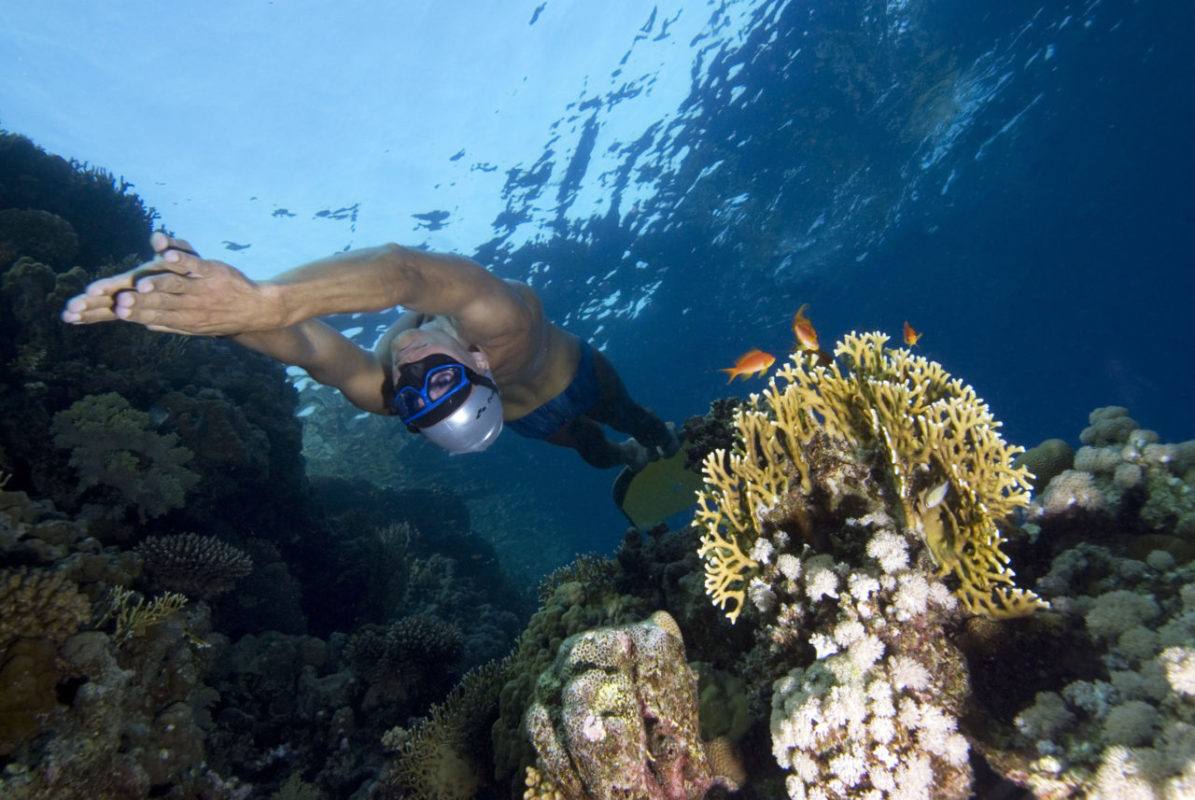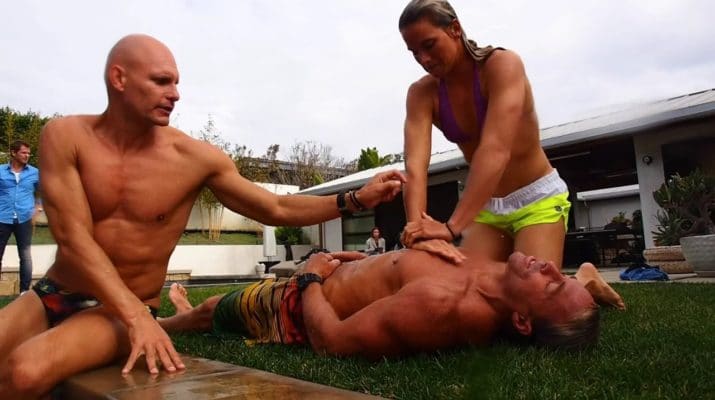Articles, Breath Holding, Freediving, Meditation & Yoga
The Art Of Freediving
The origin of freediving
Freediving is also called apnea, a Greek word meaning “without air”. You probably know the concept of sleep apnea which is an illness where the body simply “forgets” to breathe during sleep.
Over the course of history freediving has been used for various purposes. In Denmark enormous piles of clamshells have been found during excavations of Stone Age settlements, a witness to the fact that our ancestors collected food below the surface. Along the Mediterranean Sea, freediving is still employed to collect sponges, and in Japan the famous breath holders, the Ama divers, dive and collect pearls, seaweed and shellfish from the deep using only one breath or air. During a tour around the world in 1996, I visited the Badjao, the Sea Gypsies that are boat dwellers in the Celebes and Sulu Sea between Borneo and the Philippines. Badjao are nomads of the sea and seldom go ashore. They live in houseboats and in stilt-houses in the sea. When I came to Cebu port, the young badjao no longer dived for sponges or fish but dived for shiny coins thrown in the water by tourists.
Today freediving is practiced widely as a leisure sport such as in snorkeling or spearfishing. Anybody can enter the sea and experience the colorful animals and enjoy the peaceful feeling of weightless freedom that the water bestows.
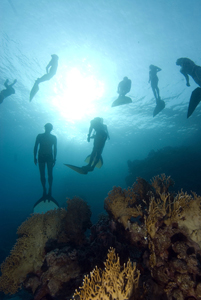
Freediving has become more and more widespread on a professional level over the last 50 years with different kinds of competitions. In the last 10 years it has experienced a true renaissance. This is partly due to a greater organization of the professional freediving community, leading to greater attention by the media. Perhaps the most important reason is that freediving matches current trends where more and more people wish to know themselves better and come closer to nature – thus becoming part of the holistic lifestyle that freediving shares with yoga.
In freediving one golden rule applies:
NEVER dive alone!
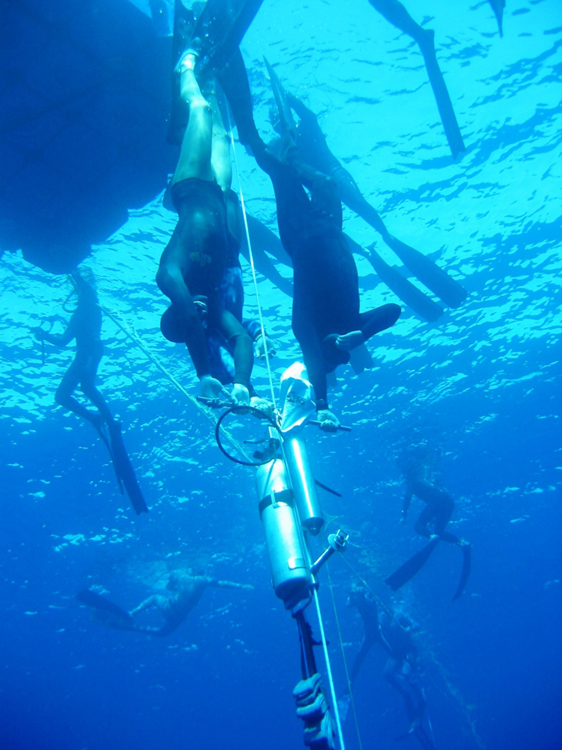
The path to your inner paradise
A freediver invents and constantly tests new methods, because it is the nature of the freediver to investigate and optimize in every possible (and impossible) way. The obvious reason is that only a limited amount of oxygen is available in a single breath. In general, top freedivers understand human and animal physiology and the mental processes well. Add respect for nature and the ability to combine and convert knowledge, experience, and intuition in order to produce results that, in the world of freediving, are measured in time, depth and length.
Freediving is a lifestyle rather than a sport. This explains why there is a focus on the spiritual aspects. Even if competitive freediving may seem driven by results, the relationship between the physical and the spiritual makes up the actual core of the sport. Key concepts are balance and harmony between the mind and the exterior world, between man and the universe.
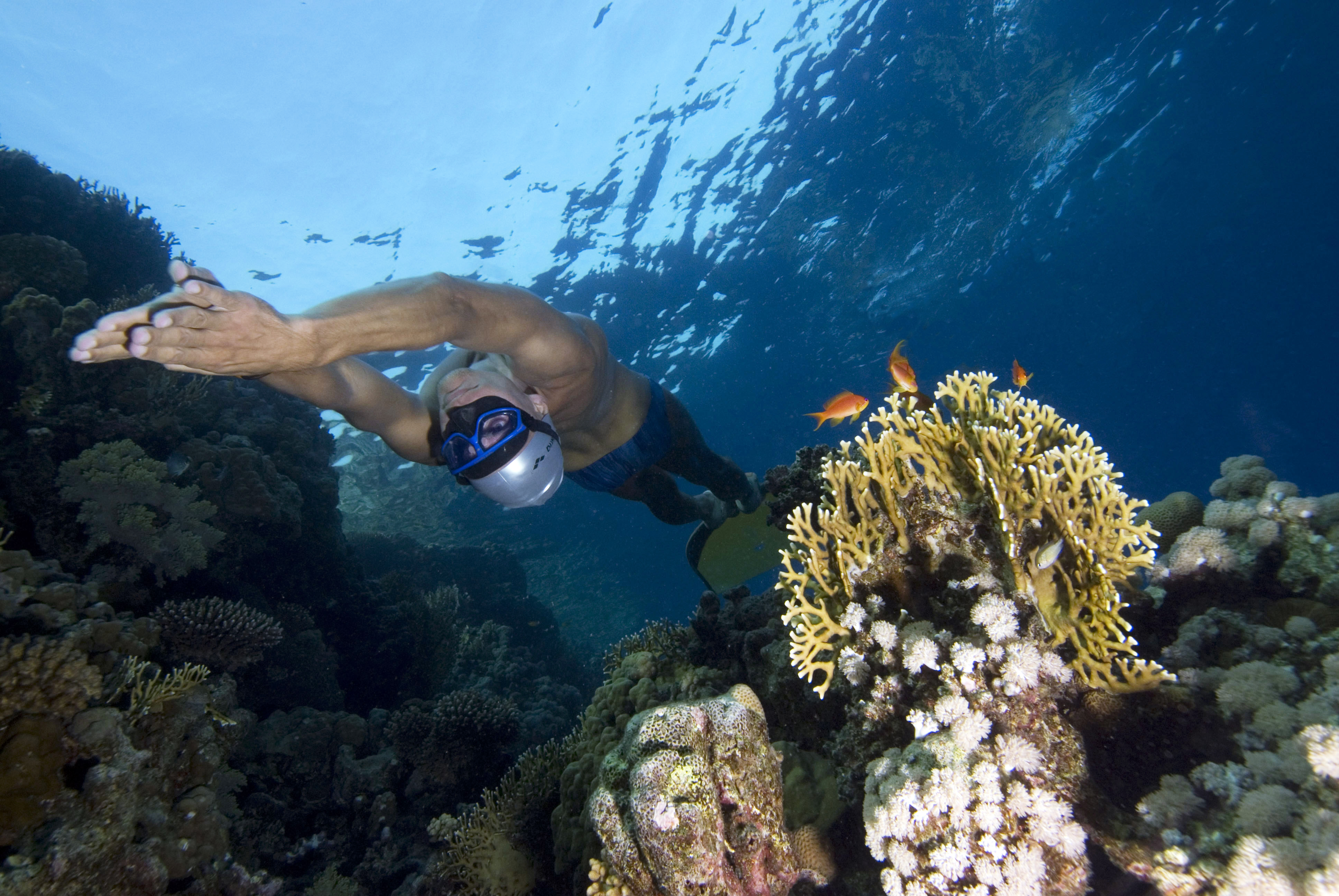
I can confirm that a combination of long breath holds, complete relaxation and concentration/meditation generates a sensation of euphoria and rapture, which creates mental clarity that may rest in the body for hours or even days after a successful dive.
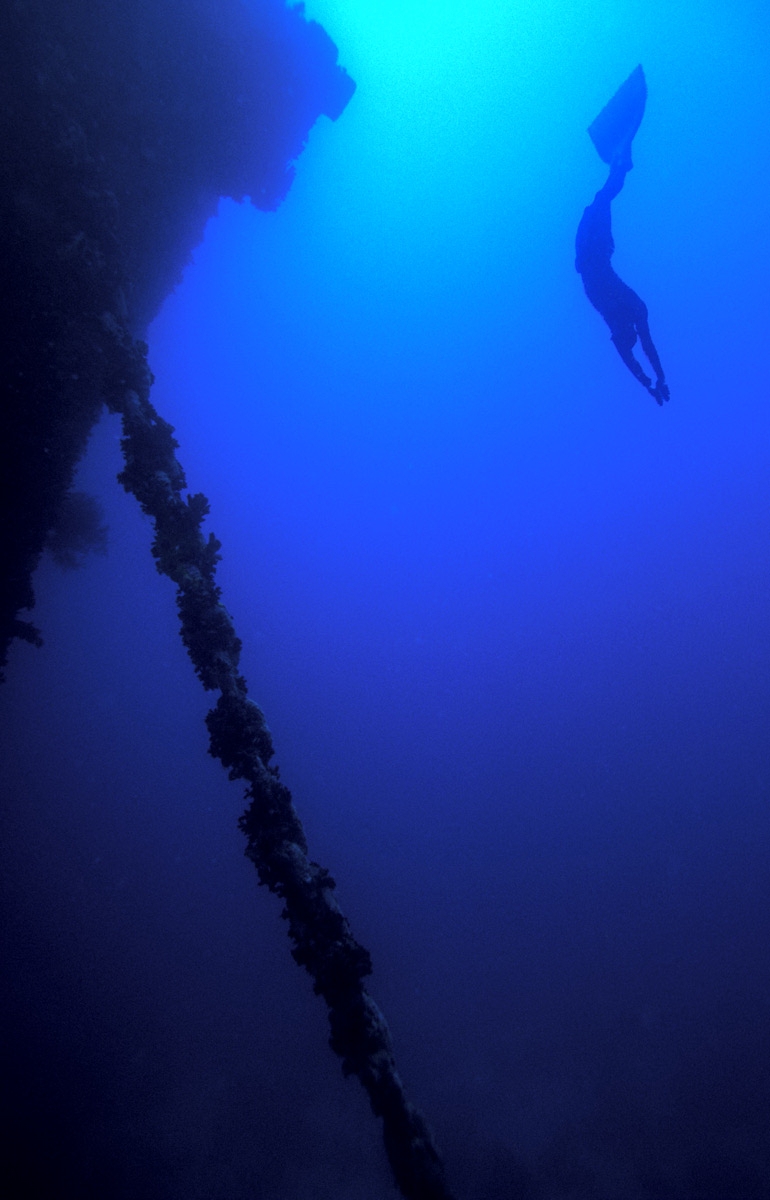
“God is at the bottom of the sea and I dive to find him.”
ENZO MAIORCA
The freediving legend, Jacques Mayol, told the following story after a stay in India. He met a retired college professor who had given up his professional career and moved to a small cottage to practice yoga with the purpose of dissolving his ego. He was in his early sixties and with intensive training he managed to hold his breath for more than six minutes during his yoga exercises. After a brief introduction to the Valsalva maneuver, where you equalize the pressure in the middle ear, Jacques Mayol enticed him to swim to the bottom of a lake. In his first attempt the professor stayed at the bottom of the lake for more than 6 minutes, and when he returned to the surface, he exclaimed, “You were right, Mr. Mayol… This is indeed a shortcut to Samadhi!” (Paradise).
One reason freediving can feel so relaxing and soothing is because of a set of reflexes that are activated during breath hold in water – also called The Mammalian Dive Response.
Yoga and freediving
Freediving can be viewed as a mediator of our time between yoga and the modern knowledge-based society. The credit for bringing Eastern traditions into the Western world of freediving should be given to the aforementioned legendary French freediver, Jacques Mayol. If your freediving knowledge is sparse but the name “Jacques Mayol” still rings a bell, this may be due to the fact that you have seen Luc Besson’s classical movie The Big Blue from 1988. The movie depicts a friendship between Jacques Mayol and his Italian rival Enzo Maiorca, and it drew significant attention to the world of freediving. At the same time the movie showed how attractive freedivers are to scientists, because these athletes can produce astonishing performances in controlled experiments.
The physiological changes that take place when you dive, such as the lowering of the heart beat and a change in the blood flow, can be described scientifically, whereas the feelings that flow through the body when you hold your breath in water have to be experienced to be understood. As in yoga, these experiences of a more mental and spiritual nature cannot be rationalized. You cannot understand them by reading about them – you have to jump in the water yourself!
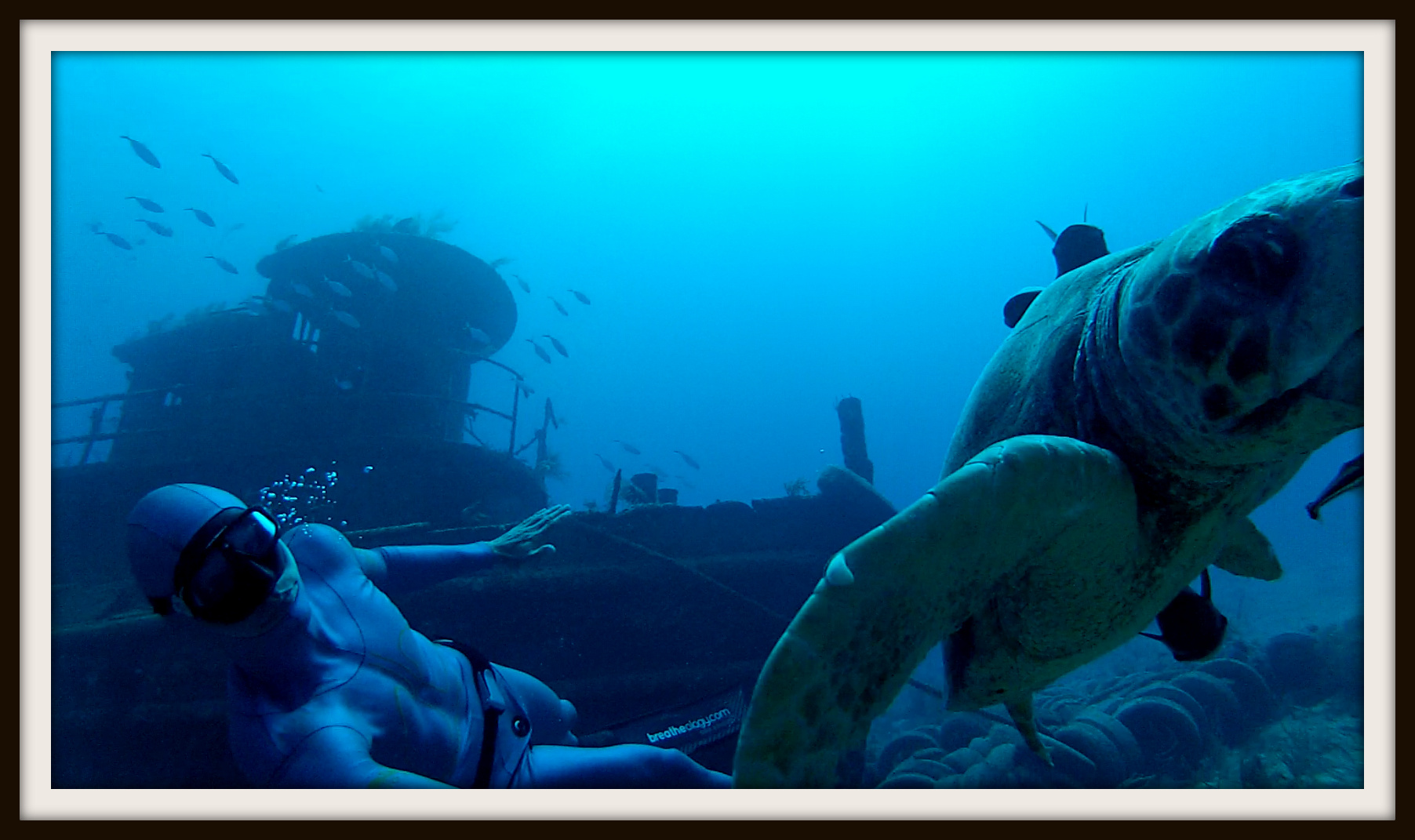
Many parallels can be drawn between freediving and yoga. The shared objective is to optimize and improve all the physiological and mental processes by gaining self-understanding, self-control and self-discipline. In time this will create a deeper understanding and respect for human nature and the way humans interact with each other as well as with their environment. Particularly our breathing, which we share with all other beings, is important because we can accomplish the most incredible things when we pay attention to our breathing.
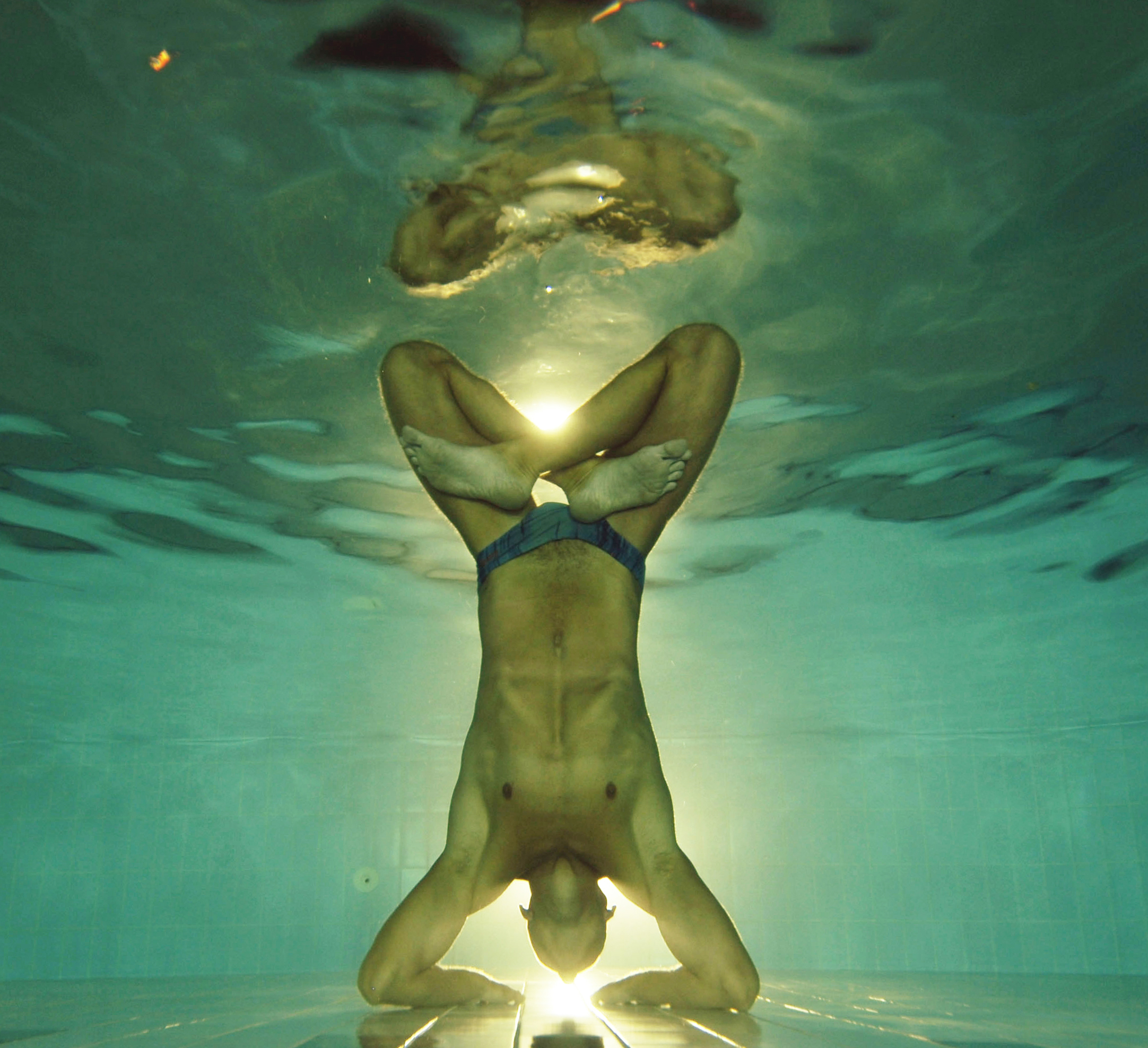
Many of the postures and breathing exercises in yoga are integrated from the animal kingdom, and this is also true of freediving. Not only the way we swim and the use of equalization techniques, but to a great extent how we hold our breath for a prolonged period of time. It is quite impressive what you can learn from simply observing and trying things out.
If you liked this article you are most welcome to share it with your friends…
STAY STAY IN AND UNDER WATER
Breatheology ULTIMATE WATER SURVIVAL™
Hold your breath much longer and learn vital skills to increase athletic performance all while improving safety in water
Breatheology Courses
Learn and master conscious breathing through our online learning programs. Discover how effective, simple techniques can help boost your performance, help you feel more balanced, and improve your well-being.
Free Courses
Kickstart your breathwork journey with our free, step-by-step training programs.
Level Up Your Skills
Take your breathwork to new heights with our advanced courses and feel the difference in your mind and body.
Similar Posts:
- Freediving Terms
- Summary: Explains key terms and jargon used in freediving, which complements understanding the art of the sport.
- How Freedivers Can Hold Their Breath for So Long
- Summary: Discusses the physiological and mental techniques that freedivers use to extend their breath-hold, an essential aspect of freediving.
- Mammalian Dive Response
- Summary: Explores the body’s natural mechanisms that enable freedivers to dive deeper and longer.
- Science Uncovers the Secret of Shallow Water Blackouts
- Summary: Analyzes a significant risk in freediving and how understanding it can improve safety and performance.
- Mental Powers of Breath-Holding
- Summary: Delves into the mental discipline required for breath-holding, a skill crucial for freediving.
